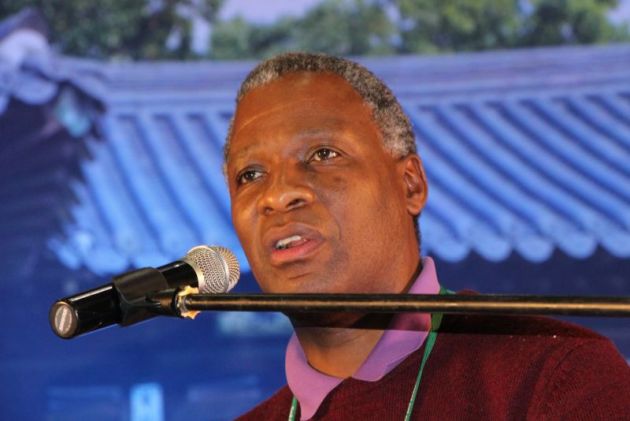South African archbishop Makgoba lashes government for education 'funding crisis'

Anglican Archbishop Thabo Makgoba has lashed out at the South African government for damaging education by failing to provide provinces with enough money to cover public service salary increases.
Opening the Anglican Church's ruling Synod, he said the government's failure to increase funding for provincial education departments to cover the full costs of salary increases "has thrown the education sector into a funding crisis in which provinces have to decide what to cut to be able to pay the increases."
In a statement, he noted that the most populous province of Gauteng has cut back on feeding and transporting learners and the Western Cape is faced with cutting 2,400 contract posts for teachers,
Other provinces face the same dilemma.
"In the sea of unemployment in which we are drowning, cutting education budgets spells disaster," said Makgoba.
"If we are to educate a modern workforce, we should be increasing investment in education, not reducing it. Adopting 'austerity measures' in the fields of education, health and social welfare is a recipe for trouble."
Makgoba heads the Anglican Church of Southern Africa, which includes dioceses in South Africa, Eswatini, Lesotho, Namibia and the island of St Helena.
"To take perhaps the most glaring example of suffering among God's people in Southern Africa, consider the levels of poverty which intensify their pangs of hunger," said the archbishop.
"In John's Gospel, Jesus says he came that God's people may have life, 'and have it abundantly.' (Jn 10:10) But what does the promise of abundant life mean to the one in every three South Africans—nearly eight-and-a-half million people—who are unemployed and the four out of every five who have given up even looking for a job?"
He said it is no help to create well-paying jobs if there are not the people qualified to do them.
"The failure of the government to increase funding for provincial education departments to cover the salary increases granted to public servants has thrown the education sector into a funding crisis in which provinces have to decide what to cut to be able to pay the increases."
At the church synod Makgoba also noted that the unemployment rate in the other nations of the church Province is just as distressing.
"In Namibia, it is approximately 33.5 percent, and in Lesotho and Eswatini, it is only a little better—24.6 percent in Lesotho (but youth unemployment is extremely high, at about 30 to 35 percent) and 28 percent in Eswatini," said the archbishop.
"The effects of unemployment, low wages, and poor economic growth are seen in the shocking levels of poverty in our different nations."
He said that South Africa, blessed by natural resources, is blighted by having nearly 40 percent of people earn less than 65 rands a day or less than 4 US dollars at the current rate and 60 percent earn less than 125 rands a day.
He said that in Lesotho, poverty is more severe, with a staggering 27 percent of the population living on less than 33 rands a day, while more than half live on less than 56 rands a day.
In Eswatini, around 59 percent of people live below the national poverty line, and 20.1 percent live in extreme poverty.
In Namibia, approximately 27.8 percent of the population lives below the national poverty line.